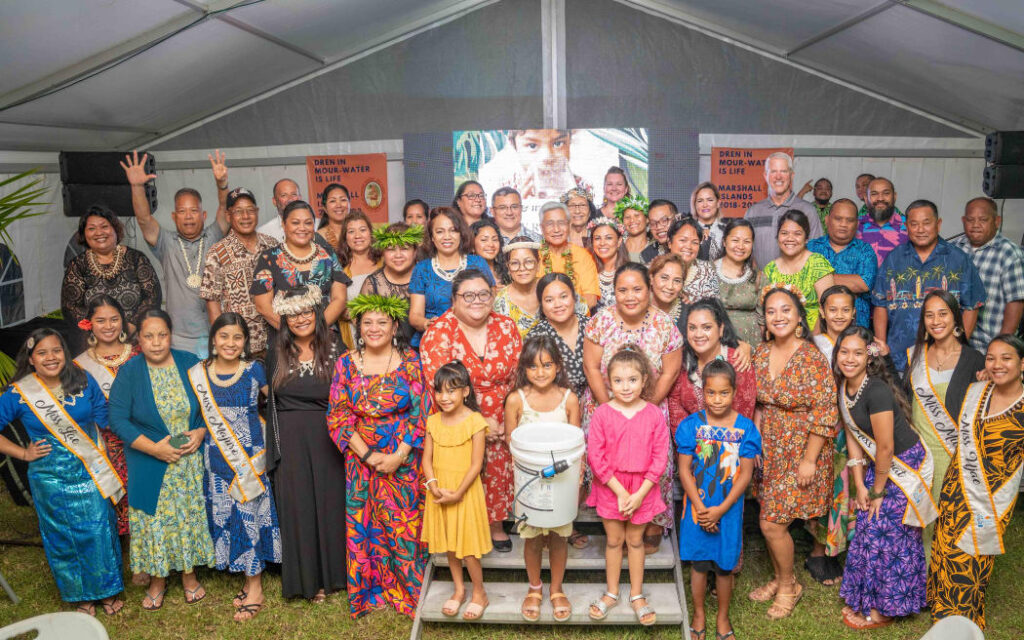The Marshall Islands was called to honor on Saturday night that it has become only the second country in the world to meet the United Nations Sustainable Development Goal of “clean water for all.”
An all-volunteer women’s organization in the Marshall Islands was credited for spearheading a five-year project to provide simple water filtration systems for home use to every family in this watery nation of low-lying coral islands.
The Marshall Islands is the second, behind Liberia, to deliver on the UN’s Sustainable Development Goal number six to provide clean water to every resident, said Darrel Larson, director of Sawyer International.
It is the maker of the portable filtration systems and partnered with the Kora In Okrane (KIO) Club in support of the water project.
KIO Club hosted a dinner Saturday night in Majuro to celebrate completing the nationwide programme of delivering the home water filtration systems to over 8000 households in the Marshall Islands, as well as training Islanders in their use and maintenance.
KIO Club president Angeline Heine-Reimers said the success of the programme was the partnership with multiple government ministries, other NGOs and the private sector.
She said it was a difficult task given the logistics of ocean travel to remote and sparsely populated islands.
“The benefit of this project to provide clean water was brought home to me on Lae Atoll,” she said.
Atolls depend nearly 100 percent on rainfall for fresh water as they have limited ground water, which is often brackish and salty.
Heine-Reimers said Lae experienced a drought after receiving the filtration systems.
While droughts often cause outbreaks of disease on atolls lacking clean water, “people on Lae said they had no problem with getting clean water” during the dry period as a result of using the newly provided water filtration systems, she said.
The systems combine Sawyer International water filters with the tubing and accessories needed to convert a five-gallon bucket into a low-cost and long-lasting gravity water filtration system.
“The Marshall Islands is one of only two nations to achieve UN SDG six,” Larson said.
He added the Marshall Islands has much to offer the world with this achievement.
“The Marshall Islands can serve as a model of government, non-profit and private sector coming together to solve a major problem: The need for clean water.”
Larson said there were many countries that were making progress in delivering clean water to their populations. “But there is no place like the Marshall Islands,” he said.
“Here, the government supported an NGO to roll out the programme. I cannot say enough about the KIO Club.”
Delivery of the water filtration systems to every corner of this dispersed nation, which covers an ocean area the size of the US state of Texas and is dotted by over 1200 small coral islands, was made possible by cooperation, said Larson.
He also praised KIO for its policy of prioritizing rural, hard-to-reach islanders and leaving the urban centres to last.
“You started with the most vulnerable people first,” he said.
Larson and other speakers commented on the fact that KIO Club is an all-volunteer women’s group that “got the project to the finish line”.
KIO Club’s Marshallese name, Kora In Okrane, translates as women who get things accomplished.
Representatives of UNICEF and the World Health Organization, which supported the five-year project, sent taped messages of congratulations that were played during the recognition dinner.
Source: Radio NZ

